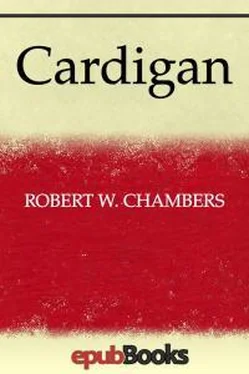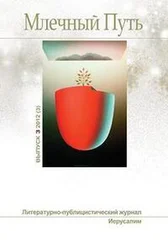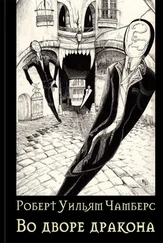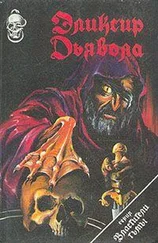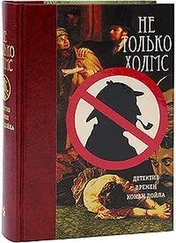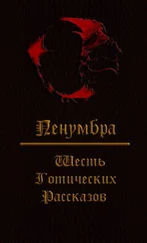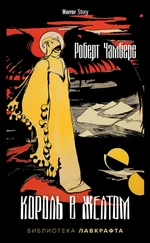Роберт Чамберс - Cardigan
Здесь есть возможность читать онлайн «Роберт Чамберс - Cardigan» весь текст электронной книги совершенно бесплатно (целиком полную версию без сокращений). В некоторых случаях можно слушать аудио, скачать через торрент в формате fb2 и присутствует краткое содержание. Год выпуска: 2014, Издательство: epubBooks Classics, Жанр: Историческая проза, на английском языке. Описание произведения, (предисловие) а так же отзывы посетителей доступны на портале библиотеки ЛибКат.
- Название:Cardigan
- Автор:
- Издательство:epubBooks Classics
- Жанр:
- Год:2014
- ISBN:нет данных
- Рейтинг книги:3 / 5. Голосов: 1
-
Избранное:Добавить в избранное
- Отзывы:
-
Ваша оценка:
- 60
- 1
- 2
- 3
- 4
- 5
Cardigan: краткое содержание, описание и аннотация
Предлагаем к чтению аннотацию, описание, краткое содержание или предисловие (зависит от того, что написал сам автор книги «Cardigan»). Если вы не нашли необходимую информацию о книге — напишите в комментариях, мы постараемся отыскать её.
Cardigan — читать онлайн бесплатно полную книгу (весь текст) целиком
Ниже представлен текст книги, разбитый по страницам. Система сохранения места последней прочитанной страницы, позволяет с удобством читать онлайн бесплатно книгу «Cardigan», без необходимости каждый раз заново искать на чём Вы остановились. Поставьте закладку, и сможете в любой момент перейти на страницу, на которой закончили чтение.
Интервал:
Закладка:
The day passed in horrible monotony; our straw had become so foul that my head swam with the stench. But towards evening came a jailer and two soldiers, who raked the filthy straw from our cage, mopped the reeking floor, and when it had partly dried, shook us down a bedding of sweet rye–straw, into which we burrowed like dogs.
That night we heard the noise of hammers overhead, and at first terror seized on all in the cage, for we believed that workmen had come to build gibbets. In the morning, when our jailer arrived to fetch us water, I spoke to him, scarcely expecting a reply, for he had never before paid the faintest attention to questions from any of us.
I was surprised, therefore, when he hesitated, glanced up at me, and finally informed me that the hammering we heard was made by masons and carpenters who were reconstructing the upper tiers of the prison for the new warden and his family.
Presuming on his pleasant manner, I continued my questioning, but he soon silenced me with a shake of his head.
"I know nothing about your case," he said. "Matters move slowly here; the prison is crowded with rebels who have defied the Governor's edict against public assemblies. Their cases come before yours, young man."
"And the others here?" I asked.
He paid no attention to my question.
I asked for news of the outside world, but he would give me none.
Mount, whose morbid curiosity had been aroused by the sight of some workmen digging holes in the yard outside the prison, stood up to watch them. The other prisoners also huddled to the south side of the cage, their chains making a great clanking as they moved. At the moment when their backs were turned the jailer looked at them significantly, then at me, and, to my horror, passed his withered fingers over his corded throat.
I stared at him, fascinated, but he shrugged his stooping shoulders, shuffled off to the wicket, let himself out, and slammed the grating.
That night I sat close to Jack Mount, my hand on his broad shoulder, crushing back the lump in my throat. I believed he was to die soon; when, I did not know; but the grim gesture of the jailer had conveyed a hint that could not be mistaken.
At dawn I stood up to gaze fearfully out into the prison yard. Snow had fallen; workmen were digging at the holes with pick and crow.
When the jailer brought breakfast to us, he laid two bundles of sail–cloth on the floor under the windows beyond our cage. Later he returned and carefully nailed each strip of cloth over the windows, hiding our view of the prison yard.
Mount asked him why he did that; the other prisoners became restless and suspicious, calling out to the jailer in Spanish and Portuguese; even the Englishman broke his long silence with a sneering inquiry as to the reason of cutting off our view. The jailer continued his task without answering or even glancing at the imprisoned men, who now crowded against the bars, clamouring, gesticulating, and clanking their manacles. They were stunted, swarthy fellows, bull–necked, shaggy of hair and beard, clothed in filthy shreds of finery to which the straw stuck.
Some were frightfully scarred; some were still swathed in bandages, greasy with filth, tied over unhealed sores or wounds. One of them, who wore large gold hoops in his ears, had lost his right hand, but he beat against the steel bars with the mangled stump, and cried ever: "Listen, señor, you good fellow! Hé! Señor! I say, señor! They will to do me no harm, eh? I am innocent, what? And thus I say to your señor Governor; eh, you good fellow? What? It is the holy truth, by Jesu!"
The Englishman laughed scornfully: "They're planting trees in the yard outside. We'll all climb them soon, won't we, jailer?"
"By God," muttered Mount, "they are planting gallows!"
When he had shrouded the windows, the jailer scrambled briskly to the floor and hastened out through the wicket, unheeding the shouts and shrill cries of the ruffians, who had rushed to the other side of the cage. When the wicket slammed the panic ceased; a dead silence followed, then one of the Spaniards uttered a piercing scream and fell down into the straw, tearing and biting at his chains.
"Die like a man! Die like a man!" said the Englishman, contemptuously; but terror had seized another of the ruffians, and he began hobbling around the cage, shrieking out prayer on prayer.
Mount, pale and composed, lay at full length in our corner, watching the wicket, a straw between his white teeth. I sat beside him, my heart hammering under my torn shirt, resolutely crushing back the terror which was feeling my throat with icy fingers.
"Do you believe they are setting the gibbets?" I asked.
"Yes," he said.
After a moment he added: "Why did you not leave me, lad? This is foul company for a gentleman to die in."
Terror choked me. I sank face downward in the straw, blind with fright, and lay there shaking till the candle was lighted and the lanthorn in the corridor sent its yellow rays through the wicket.
Black, whirling thoughts swarmed through my brain; again and again I fought the battle for courage, only to lose it and again find myself faint with horror, tearing silently at my chains.
"Now that I know I am to die," said Mount, calmly, "I shall die easily enough. It was hope that hurt. I shall die easily."
"I shall die hard," I stammered; "no one will know it, but I shall die hard out there in the snow."
"I will stand next to you if I can," said Mount. "If you feel weak, reach out and touch me. I shall jest with the hangman. It is easy; you will see how easy it can be." I raised my head to look at him.
"You care nothing," I said, fiercely; "you will see Cade Renard, and you care nothing! But I am leaving her !"
"God will right all that," said Mount, gravely.
"As for death," I blurted out, pronouncing the word with an effort, "I can die as coolly as you. But—but a gentleman's son—on the gibbet—hanging in chains between thieves—the disgrace—"
Shame strangled the voice in my throat, my head reeled.
"Our Lord so died," said Mount, slowly.
I sat still as a stone. Mount gathered his knees in his hands and chewed his straw peacefully, blue eyes fixed on vacancy.
Presently I plucked his sleeve. "Yes, lad," he said, without turning.
"You are not afraid that I will not know how to meet—it?" I asked.
"No."
"I am—am not afraid," I whispered. "I mean to bear myself without fear. I shall speak to you when—we are ready. You shall see I am not afraid. Will they pray, Jack?"
"When? Now?"
"No, to–morrow."
"They will say a prayer on the gallows, lad."
"Will they take off our chains?"
"No."
"How—how long shall we hang?"
"A long time, lad."
"Could anybody know our features?"
"The weather will change them. Have you never seen a cross–roads gibbet?"
"No. Have you?"
"Yes, lad."
After a silence I said, "I hope no one will know me."
He did not reply; the candle–flame in the dripping socket swayed in icy draughts from the wicket; the Spaniards muttered and moaned and cried like sick children; the Englishman stood in silence, staring at the windows through which he could not see.
Presently he came over to our corner. We had never before spoken to him, nor he to us, but now Mount looked up with a ghost of a smile and nodded.
"It's all behind that window," said the Englishman, jerking his thumb over his shoulder; "we'll know all about it this time to–morrow. Is the young one with you afraid?"
"Not he," said Mount.
The Englishman sat down on his haunches.
"What do you suppose it is?" he asked.
"What? Death?"
"Ay."
"I don't know," said Mount.
"Nor I," said the Englishman, with an oath; "and," he added, "I have dealt it freely enough, too. Have you?"
Читать дальшеИнтервал:
Закладка:
Похожие книги на «Cardigan»
Представляем Вашему вниманию похожие книги на «Cardigan» списком для выбора. Мы отобрали схожую по названию и смыслу литературу в надежде предоставить читателям больше вариантов отыскать новые, интересные, ещё непрочитанные произведения.
Обсуждение, отзывы о книге «Cardigan» и просто собственные мнения читателей. Оставьте ваши комментарии, напишите, что Вы думаете о произведении, его смысле или главных героях. Укажите что конкретно понравилось, а что нет, и почему Вы так считаете.
